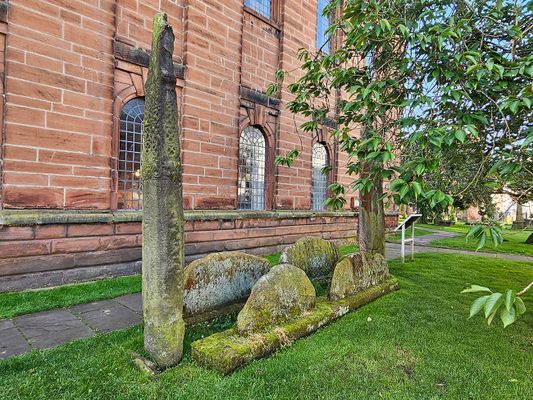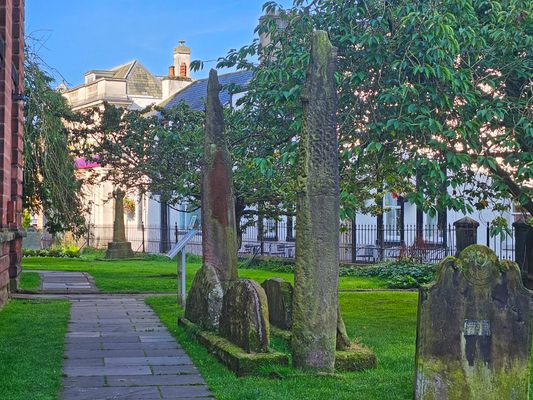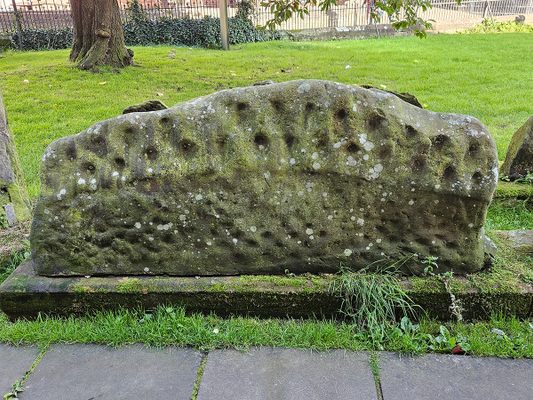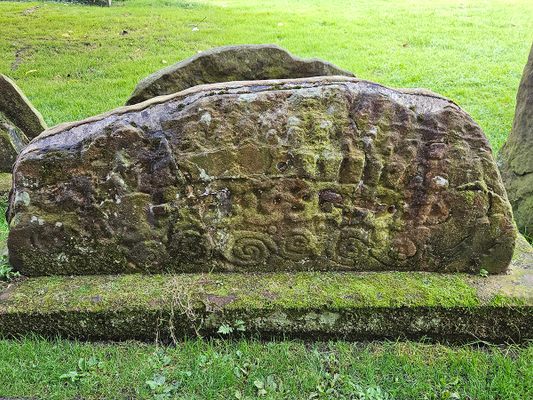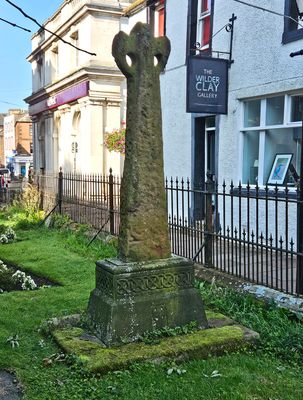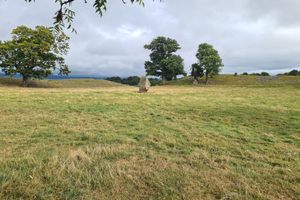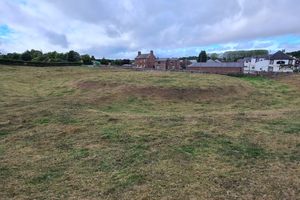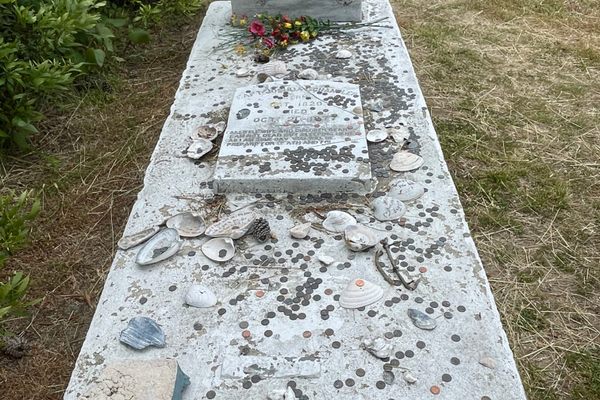About
The Giant’s Grave stands out among the grave markers in St. Andrew’s Churchyard in Penrith. Instead of a simple vertical slab, the grave consists of two tall columns (which were once crosses) over three meters high with four shorter semicircular (or hogback) stones arranged in two rows between the pillars. All of the stones contain carvings, although some of the stones are much more weathered than others.
The stones comprising the Giant’s Grave date back to the 10th century, and their design indicates Celtic, Anglican, and Scandinavian influences. However, some details regarding the site are unclear. Some legends suggest that this is the resting place of a giant medieval boar-hunter named Owen Caesarius. More plausible stories indicate that this could be the resting place of King Owen, who ruled over Cumbria from 920 to 937. The grave was dug up in the 17th century, revealing human remains that included very long leg bones and a sword, so it is plausible that the occupant was indeed a very tall man of importance from the 10th century.
As an additional archaeological complication, the stones are apparently not in their original positions. The two crosses were originally positioned much closer together, and the hogback stones were located in other parts of the cemetery. All of the stones were moved to their current arrangement in the 17th century. Even so, this unusual grouping of medieval grave markers has intrigued many visitors to the cemetery over the years and has become a celebrated local landmark.
As a final note, the churchyard contains one more medieval grave marker. A carved stone cross named the Giant’s Thumb stands in a place on the edge of the cemetery but within sight of the Giant’s Grave. The Giant’s Thumb was apparently another grave marker for another important individual who died in 920. Interestingly, only the top part of the monument dates back to the medieval era; the base was added in 1887. Before that time, the cross had also been used as a whipping post for local criminals.
Related Tags
Know Before You Go
Both the Giant’s Grave and the Giant’s Thumb are located on the north side of St. Andrew’s Churchyard, with the Giant’s Grave positioned close to the church’s northern wall and the Giant’s Thumb positioned near the northern fence close to the church’s entrance.
The church itself, which is open every day, is located in the center of Penrith just east of Market Square. For people traveling on public transport from outside the city, the church is about a seven-minute walk from the train station. For people traveling by car, parking is available on several nearby streets as well as in car parks scattered around the city center.
Published
December 2, 2024
